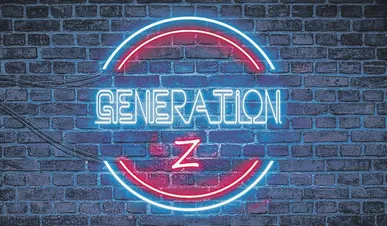
Gen Z: what now… and where do we go from here?
If there was a prize for the number of key people you’ve influenced before you are 18, Greta Thunberg would probably be a strong contender. She has had an extraordinary time in the last year, speaking at major conferences, going to key places, and meeting so many important world leaders. It’s sometimes hard to remember she will only be 18 later on in 2020. She is part of the Gen Z generation.
The large numbers of people born after the end of the Second World War, especially in the US and the UK, caused the phrase ‘baby boomer’ to be popular for a while, quickly shortened to just ‘boomer,’ and usually taken for simplicity as those born between 1945 and 1963. Those coming afterwards were far fewer in number; they ‘stopped the boom’, or ‘busted’ it, and so for a while were called the ‘baby busters’. This is a disparaging title, however, and when Douglas Coupland published his book Generation X: Tales for an Accelerated Culture in 1991 his phrase instantly stuck and they became ‘Gen X’ (born 1964 to 1982) from then on.
Fanning the flames of the hopes and dreams of Gen Z
On Saturday mornings I really enjoy grabbing a great cup of coffee and picking up The Times newspaper. It is a brilliant way to catch up on the news and to see where to direct my prayers.
How delighted I was to read the following headline last week: ‘Gen Z half as likely as their parents to identify as atheists.’ As I read on, it was amazing to see that those who are part of Gen Z (born between 1996 and 2010) are a far more spiritual generation than many think. This particularly impacted me as I am a parent of teenagers and had already sensed this might be true. Only 12% of under 25s are atheists which is far lower than for Boomers at 20%, or my own generation, Gen X, that is the most atheist of all the age groups.